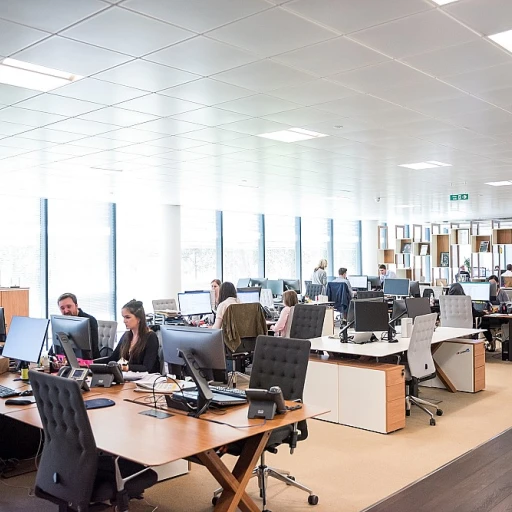
Key Responsibilities of a Food and Beverage Manager
Primary Functions and Daily Tasks
The role of a Food and Beverage Manager encompasses a wide range of duties and responsibilities crucial for the successful management of food and beverage operations. This position is pivotal within the hospitality industry, particularly in settings such as hotels, resorts, and restaurants.
- Overseeing Operations: A Food and Beverage Manager is tasked with overseeing the daily operations of food and beverage services. This includes managing inventory, ensuring food safety, and maintaining quality service standards.
- Team Management: Effective team management is critical as the manager is responsible for hiring, training, and supervising staff, ensuring that team members are well-equipped to provide impeccable customer service.
- Financial Management: Budgeting and financial management are key responsibilities. The manager must ensure profitability by monitoring financial performance, controlling costs, and developing strategies to increase revenue.
- Customer Relations: Customer service is at the heart of hospitality, thus maintaining positive customer relations through attentive service and effective problem-solving is imperative.
- Compliance and Safety: Ensuring that all operations comply with health codes and safety regulations is a critical duty to safeguard both customers and staff.
The breadth of these responsibilities highlights the necessity for a comprehensive understanding of management roles in the hospitality sector. Such skills not only ensure operational effectiveness but also pave the way for career progression within food and beverage management.
Skills and Qualifications Needed
Essential Skills and Qualifications in Hospitality Management
In the hospitality industry, hiring a food and beverage manager requires a keen understanding of the crucial skills and qualifications necessary for the role. As part of a hotel or restaurant team, a manager must blend various competencies to effectively oversee food and beverage operations.- Leadership and Team Management: The ability to lead and manage a team is critical. The manager will guide the service staff, ensuring that they deliver exceptional customer service while maintaining high standards in food safety.
- Customer Service Excellence: Strong interpersonal skills are mandatory to ensure a pleasant experience for guests. A focus on customer satisfaction can significantly impact a restaurant's or hotel's reputation.
- Problem Solving and Decision Making: A manager must possess solid problem-solving skills to address issues swiftly and make impactful decisions in operations to enhance efficiency and service quality.
- Hospitality Management Knowledge: Robust understanding of hospitality management principles allows managers to balance the operational, financial, and human resource aspects of the role.
- Financial Acumen: A solid grasp of managing budgets, costs, and profitability is essential. Beverage managers often oversee inventory and purchasing, demanding precise financial management skills.
- Regulatory Compliance: Knowledge of food safety and local regulations ensures that the establishment complies with all necessary health and safety standards.
Challenges in Hiring a Food and Beverage Manager
Overcoming Challenges in the Hiring Process
Hiring a Food and Beverage Manager in the hospitality industry can be a complex task. This role requires a unique blend of skills and experience, making it essential to navigate the hiring process with precision. Here are some common challenges and how to address them:
- Identifying the Right Skills: The job description for a Food and Beverage Manager should clearly outline the necessary skills, such as customer service excellence, problem-solving abilities, and a deep understanding of food safety regulations. Ensuring that candidates possess these skills is crucial for effective management.
- Evaluating Experience: Experience in food and beverage operations is vital. Candidates should have a proven track record in managing teams and delivering exceptional service in a hotel or restaurant setting. Look for those who have demonstrated leadership in similar roles.
- Understanding Industry Trends: The hospitality industry is constantly evolving. A successful candidate should be aware of current trends impacting the role, such as sustainability practices and digital innovations in customer service. This knowledge will help them adapt and thrive in their duties and responsibilities.
- Conducting Effective Interviews: Crafting the right interview questions can help assess a candidate's suitability for the role. Focus on questions that reveal their management style, ability to handle stress, and approach to team leadership.
By addressing these challenges, you can enhance your hiring strategy and find a Food and Beverage Manager who will contribute positively to your operations.
Interview Questions to Consider
Evaluating Potential Candidates Through Thoughtful Interview Questions
When recruiting a food and beverage manager, carefully crafted interview questions are crucial in evaluating a candidate's suitability for the role. These inquiries should focus on assessing the applicant's expertise, experience, and approach to managing both food and beverage operations within the hospitality industry. Here are some strategic questions to consider:- Experience and Skills Assessment: "Can you describe your experience in managing F&B operations in a high-pressure environment such as a hotel or restaurant?"
- This question gauges their past exposure and the depth of their knowledge, crucial for effective management.
- Problem-Solving Abilities: "Tell us about a challenging situation in a previous role and how you handled it."
- Understanding the candidate's problem-solving skills provides insight into how they might overcome obstacles in a managerial capacity.
- Team Leadership: "How do you foster a culture of exceptional customer service among your team members?"
- Evaluating their approach to team motivation and customer service excellence reveals their leadership methodology.
- Knowledge of Industry Trends: "How do you stay updated on the latest trends impacting the food and beverage industry?"
- Keeping abreast of trends is vital for implementing innovative strategies that elevate food and beverage service standards.
- Food Safety and Quality Control: "Describe your approach to maintaining food safety and quality within a busy operation."
- Ensuring food safety is paramount, and this question assesses the applicant's awareness and initiatives in upholding strict standards.
- Operational Management: "Can you illustrate a time when you optimized operations to enhance efficiency and reduce waste?"
- This enables an understanding of their operational management skills and ability to drive improvements within the department.
Training and Development Opportunities
Growth and Learning Opportunities for Aspiring Managers
In the dynamic world of food and beverage management, continuous training and development are pivotal. This industry necessitates a unique blend of management skills and customer service prowess. Understanding the responsibilities—from leading a team in a bustling restaurant to managing beverage operations in a hotel—is foundational to excelling in this role. Aspiring managers should consider the following avenues for training and development:- Formal Education: Degrees in hospitality management or related fields can provide theoretical knowledge and practical insights into food and beverage operations. These programs often cover essential areas like food safety, customer service, and team leadership.
- Certification Programs: Certifications such as the Food and Beverage Manager Certification demonstrate commitment and competency in the field. They enhance your professional profile and equip you with the latest industry practices.
- On-the-Job Experience: Real-world experience is invaluable. Working in various positions within the industry helps you understand the complexities of the job description and prepare for the responsibilities of a manager.
- Workshops and Seminars: Engaging in industry conferences and workshops provides opportunities to learn from experts, network with peers, and stay updated on hospitality industry trends affecting food and beverage roles.
- Mentorship and Coaching: Having guidance from experienced managers can accelerate your growth. Mentors can offer personal insights and practical advice tailored to your career goals.
Trends Impacting the Role
Emerging Trends Influencing the Role
In the fast-evolving hospitality industry, staying abreast of current trends is imperative for any food and beverage manager. These trends not only shape their responsibilities but also influence how they approach management and customer service. Below are some key trends impacting the role today:
- Sustainability Practices: With increasing awareness about environmental impacts, there is a growing demand for sustainable practices in food and beverage management. Managers are expected to implement strategies that minimize waste and promote eco-friendly operations while maintaining quality service.
- Technology Integration: Technology has revolutionized food and beverage operations, enhancing efficiency in service delivery and inventory control. Roles now require a proficient understanding of digital tools and management systems tailored for the hospitality industry.
- Focus on Health and Wellness: There is a rising demand for healthier menu options. Food and beverage managers must adjust their planning and procurement processes to offer nutritious and diverse options that cater to health-conscious customers.
- Enhanced Customer Experience: Creating a memorable experience goes beyond the food and beverage served. Managers are expected to innovate in terms of service and ambiance, offering personalized service that aligns with customer expectations.
- Workforce Management: With increasing complexity in operations, effective team management and problem solving are crucial. Leaders must navigate the dynamics of a diverse workforce while ensuring team engagement and productivity.
These trends highlight the evolving landscape of the food and beverage manager role, necessitating continuous learning and adaptation in skills and strategies. Embracing these changes can result in significant improvements in operations and customer satisfaction.













